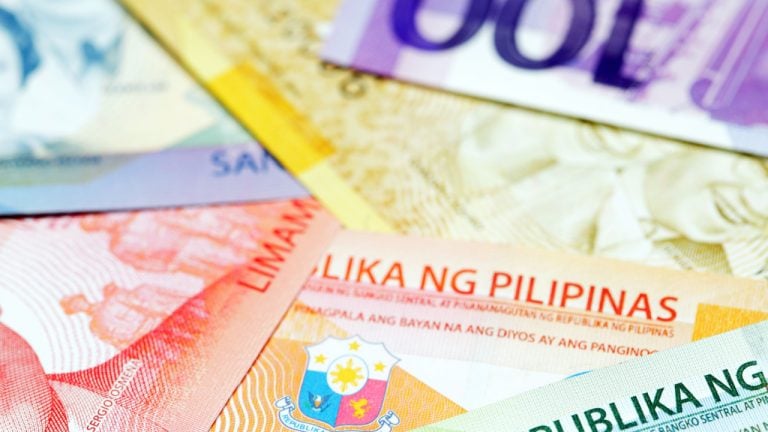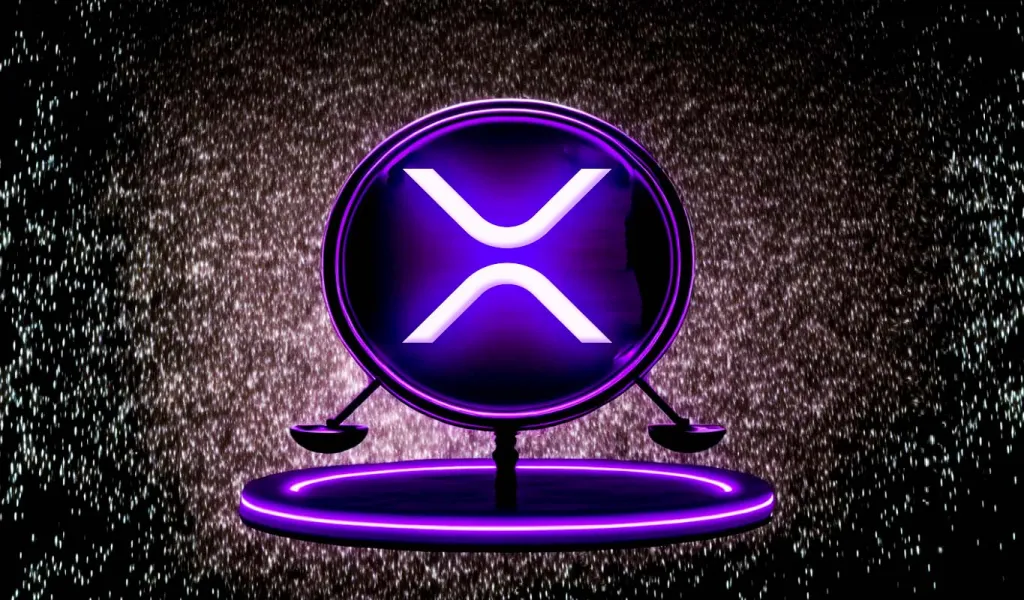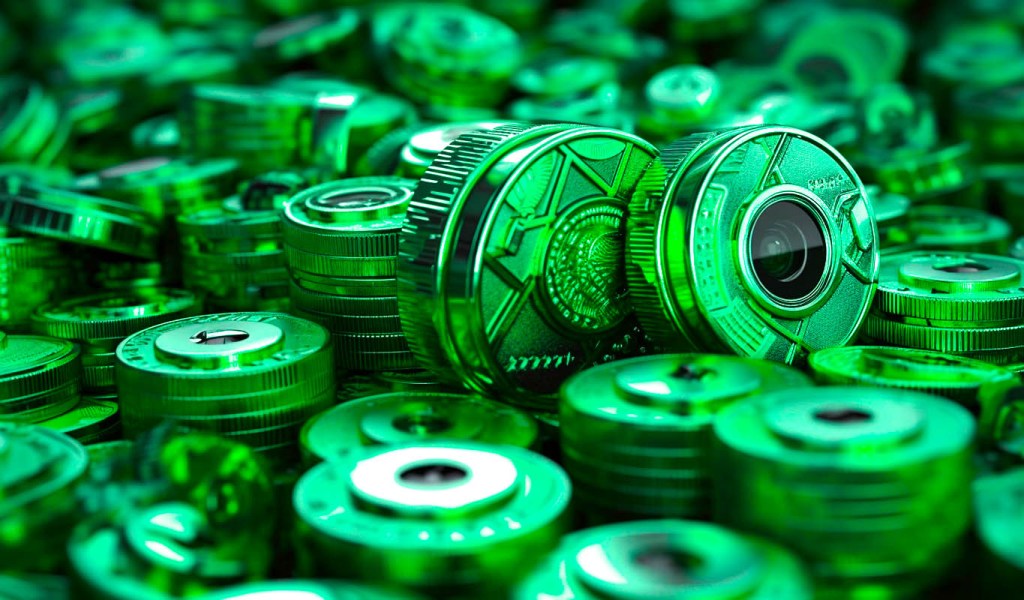 The Central Bank of the Philippines revealed that it aims to conclude the ongoing wholesale CBDC pilot, Project Agila, later this year. The pilot, which currently includes the participation of six local financial institutions, might be the gate for democratizing access to securities according to Deputy Governor for Payments and Currency Management Sector Mamerto Tangonan. […]
The Central Bank of the Philippines revealed that it aims to conclude the ongoing wholesale CBDC pilot, Project Agila, later this year. The pilot, which currently includes the participation of six local financial institutions, might be the gate for democratizing access to securities according to Deputy Governor for Payments and Currency Management Sector Mamerto Tangonan. […] The Central Bank of the Philippines will develop a central bank digital currency (CBDC) in the next two years, according to Governor Eli Remolona Jr. The still unnamed CBDC will focus on the wholesale market and won’t use blockchain tech, instead relying on the Philippine Payment and Settlement System, owned and operated by the central […]
The Central Bank of the Philippines will develop a central bank digital currency (CBDC) in the next two years, according to Governor Eli Remolona Jr. The still unnamed CBDC will focus on the wholesale market and won’t use blockchain tech, instead relying on the Philippine Payment and Settlement System, owned and operated by the central […]

The head of the Philippines SEC clarified that Binance and any other unregistered exchange issued with an advisory has three months before they're banned from the country.
The Philippine Securities and Exchange Commission head Kelvin Lee clarified in a panel on Dec. 13 that the ban on Binance would come into effect three months after the advisory was issued.
According to a report from local news BitPinas, Lee said there has been a lot of confusion on the internet about the ban after regulators issued an advisory to the cryptocurrency exchange for operating without a license on Nov. 28.
He was asked to clarify the matter and that the ban was “supposed to be three months from the issuance date,” which he said was given on Nov. 29.

According to the Philippines SEC, entities involved in promoting or trading on Binance could face up to 21 years of imprisonment and $90,000 in penalties.
Cryptocurrency exchange Binance has been operating in the Philippines without the necessary approval or license, according to the local securities regulator.
The Philippines Securities and Exchange Commission (SEC) issued a warning against Binance on Nov. 28, informing the public that the exchange is not authorized to sell or offer securities in the country.
The announcement emphasized that an exchange like Binance must apply for registration and provide detailed information about offered securities before selling them to the public. Such detailed information includes the issuance price, the nature of securities and other data.
Related: Philippines to sell $179M in tokenized treasury bonds for the first time
The Philippines’ Securities Regulation Code (SRC) also requires securities issuers to be registered in the country before being offered for investment. The issuer should also acquire a secondary license to sell or offer securities to the public, the statement notes, adding:
“Based on the Commission’s database, the operator of the platform Binance is not registered as a corporation in the Philippines and operates without the necessary license and/or authority to sell or offer any form of securities as defined under Section 3.1 of the SRC.”
In addition to operating without the necessary license, the SEC argued that Binance had been illicitly promoting its services in the country. The regulator warned entities involved in promoting or trading on Binance may be held criminally liable under Section 28 of the SRC.
This is a criminal offense that carries the penalty of a fine of up to 5 million Philippine pesos ($90,300), or imprisonment of 21 years, or both, under Section 73 of the SRC, the statement notes.
Binance did not immediately respond to Cointelegraph’s request for comment.
This is a developing story, and further information will be added as it becomes available.
Magazine: How to protect your crypto in a volatile market — Bitcoin OGs and experts weigh in

Real-world asset tokenization as a concept has existed for some time. However, in 2023, with the growing interest of institutions, various governments have started experimenting with the idea.
The Philippines Bureau of the Treasury announced it would offer 10 billion pesos ($179 million) of one-year tokenized treasury bonds for the first time after canceling the traditional auction scheduled for Nov. 20.
The Bureau of the Treasury will offer the tokenized bonds to institutional buyers at minimum denominations of 10 million pesos with increments of 1 million pesos. The bonds will be valid for one year and due in November 2024. The final interest rate will be disclosed on the issuance date, according to a report by Bloomberg.
The bonds will be issued by the state-owned Development Bank of the Philippines and the Land Bank of the Philippines.
When asked whether the government is exploring continuous use of tokenized real-world assets and bonds, Deputy Treasurer Erwin Sta said it will “continue to study the technology and test how far we can take it.”
The move by the Philippines to issue tokenized bonds over traditional ones comes amid a growing interest of Asian governments in the tokenized bond market. In February, Hong Kong issued $100 million in tokenized green bonds under its Green Bond Programme. The government used Goldman Sachs’ tokenization protocol to tokenize the bonds with one-year validity.
Another Asian country, Singapore, recently launched a series of pilots on tokenizing real-world assets in partnership with JPMorgan, DBS Bank, BNY Mellon and investment firm Apollo. The United Arab Emirates has also teamed up with HSBC to carry out the tokenization of bonds.
Related: NASDAQ-listed Interactive Brokers to offer crypto trading in Hong Kong
Apart from the growing popularity of blockchain-based real-world asset tokenization in Asia, Israel’s Tel Aviv stock exchange also completed out a proof-of-concept for tokenizing fiat and government bonds.
The tokenization of real-world assets using blockchain technology has gained popularity among governments recently. The trend has also gained momentum fuelled by the interest of financial giants like JPMorgan, HSBC and others.
Magazine: Best and worst countries for crypto taxes — Plus crypto tax tips

18 million users of Coins.ph are expected to receive a faster, lower-cost and more accessible remittance option as a result of the new partnership with Circle.
Circle, the issuer of the U.S. dollar-pegged stablecoin, USDC (USDC), is increasing its presence in the Philippines with a new local partnership.
On Oct. 10, Circle announced a strategic partnership with Coins.ph, a major cryptocurrency exchange and digital wallet provider in the Philippines.
As part of the partnership, Coins.ph and Circle will work jointly to drive awareness of USDC payments and help Filipino people pay less for cross-border money transfers and make faster transactions, the companies said.
The average cost of sending a $200 payment to Asia was 5.7% in 2022, they added, citing World Bank data. In the Philippines, the situation with remittances is even more complicated for the unbanked, which accounted for 44% of the adult population in 2021, according to the Philippines Central Bank.
“With a staggering $36.1 billion in remittance flows in 2022 alone remittances continue to be a vital contributor to the Philippines' economy,” but traditional remittance channels often involve high fees and lengthy transaction times, Circle and Coins.ph said in the joint announcement.
The latest partnership between the firms aims to improve the existing remittance landscape, starting in the Philippines, one of the world’s largest recipients of remittances globally. The project includes educational campaigns and community engagement initiatives to help Filipinos abroad learn to use USDC for remittances.
Related: Circle rolls out native USDC tokens on Polygon
“Coins.ph’s partnership with Circle aims to show how USDC can provide a faster, lower-cost and more accessible remittance option for our 18 million Filipino users and their families and loved ones abroad,” Coins.ph CEO Wei Zhou said. He added:
“Coupled with our recent innovations in Web3 technology, this initiative demonstrates Coins.ph’s commitment to providing users’ access to innovative services that have a tangible impact on their everyday lives.”
Founded in 2014, Coins.ph is a major cryptocurrency exchange in the Philippines, also allowing users to pay their bills and remit money using its digital wallet.
At the time of the announcement, USDC is not the only stablecoin listed on the Coins.ph exchange. According to data from CoinGecko, daily USDC trading volumes on Coins.ph amount to $44,500 and make up just around 13% of all daily trading in Tether (USDT), a major rival stablecoin. The exchange trades roughly $1 million per day at the time of writing, according to CoinGecko.
Magazine: Web3 Gamer: Minecraft bans Bitcoin P2E, iPhone 15 & crypto gaming, Formula E

Ripple Labs’ payments platform is expanding into Southeast Asia as the crypto firm partners with a prominent Japanese financial services titan. According to a new press release, Ripple Labs is collaborating with SBI Remit, the remittance arm of SBI Group to provide international remittances to the Philippines, Vietnam, and Indonesia using the digital asset XRP. […]
The post XRP Remittance Tech Expanded to Three Countries by $138,000,000,000 Financial Giant’s Subsidiary appeared first on The Daily Hodl.

Playing crypto games can be riskier than investing in cryptocurrencies, according to the Filipino ACG, considering the ease with which gamers can lose their digital tokens and NFTs.
The Philippine National Police Anti-Cybercrime Group (PNP ACG) scrutinized some of the models used by cryptocurrency games, warning Filipino citizens against the various schemes used to extort money from the gaming community.
While warning against the risks of cryptocurrency gaming schemes, the Phillippine police highlighted the play-to-earn model used by Axie Infinity, a Pokemon-inspired play-to-earn metaverse game created on the Ethereum blockchain.
A player needs to purchase at least three Axie characters to start playing the game, which the PNP ACG believes forces users to shell out $300 before they can start earning. On the other hand, the police department sided with the traditional gaming industry, which averages up to $100 per user.

Playing crypto games can be riskier than investing in cryptocurrencies, according to the PNP ACG, considering the ease with which gamers can lose their digital tokens and nonfungible tokens (NFTs).

From sending tokens to an unsupported wallet address to market volatility and online scammers, the crypto gaming community is under constant threat of losing their investments. The warning read:
“Just because a game’s underlying blockchain is secure does not mean its engine or marketplace is secure.”
The recommendation from the PNP ACG resonates with the best practices tied to crypto investments. Users are advised to conduct thorough research on ecosystems and founders before investing in cryptocurrencies, and users should be cautious when interacting with unknown individuals and phishing links.
Related: The Philippines delays publishing crypto framework
The Philippine Department of Information and Communications Technology (DICT) recently entered into a partnership with the Blockchain Council of the Philippines (BCP) to expedite Web3 adoption in the region.

“We have seen the rise of innovative blockchain in startups, the success of blockchain-based business solutions and the birth of the initiative that makes blockchain for public good,” said DICT Director Emmy Lou Versoza-Delfin during the announcement.

Payments giant Western Union is collaborating with a $75 billion bank to study the effects of a US central bank digital currency (CBDC). According to a new press release, Western Union and Philippines-based BDO Unibank are working together to explore how the implementation of a US CBDC, or a digital asset issued and backed by […]
The post Payments Giant Western Union Collaborates With $75,000,000,000 Bank on a US CBDC Pilot Study appeared first on The Daily Hodl.